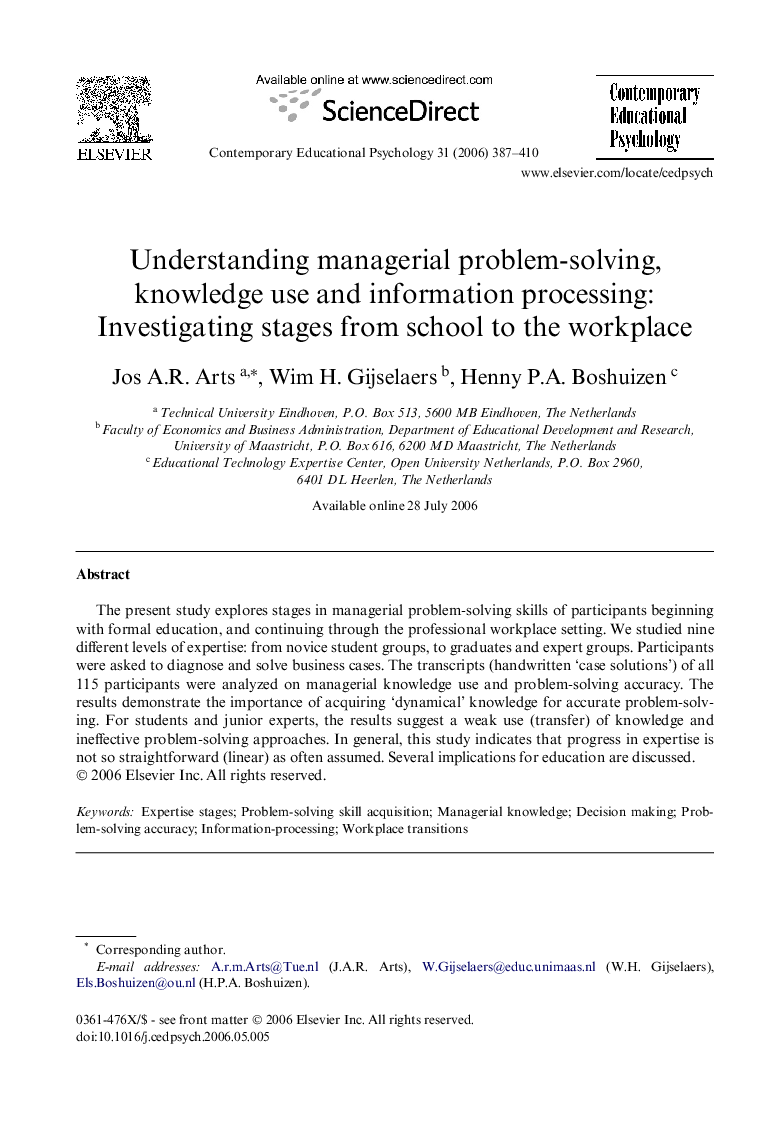| Article ID | Journal | Published Year | Pages | File Type |
|---|---|---|---|---|
| 352885 | Contemporary Educational Psychology | 2006 | 24 Pages |
The present study explores stages in managerial problem-solving skills of participants beginning with formal education, and continuing through the professional workplace setting. We studied nine different levels of expertise: from novice student groups, to graduates and expert groups. Participants were asked to diagnose and solve business cases. The transcripts (handwritten ‘case solutions’) of all 115 participants were analyzed on managerial knowledge use and problem-solving accuracy. The results demonstrate the importance of acquiring ‘dynamical’ knowledge for accurate problem-solving. For students and junior experts, the results suggest a weak use (transfer) of knowledge and ineffective problem-solving approaches. In general, this study indicates that progress in expertise is not so straightforward (linear) as often assumed. Several implications for education are discussed.
